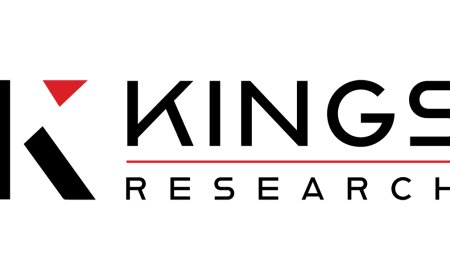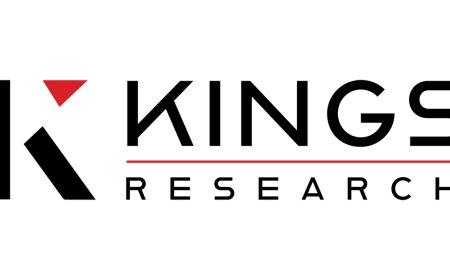How Microsoft Azure Supports Healthcare Providers with Secure Data Exchange
This article explores how Microsoft Azure Cloud Service supports healthcare providers with secure data exchange, addressing challenges such as data privacy, interoperability, compliance, and scalability.

Introduction
In todays rapidly evolving healthcare landscape, secure and efficient data exchange is critical for delivering high-quality patient care, improving operational efficiency, and complying with strict regulatory requirements. Healthcare providers are increasingly turning to cloud platforms to manage, store, and share sensitive patient information. Among these, Microsoft Azure Cloud Service stands out as a leading solution that empowers healthcare organizations to exchange data securely while harnessing the power of the cloud.
This article explores how Microsoft Azure Cloud Service supports healthcare providers with secure data exchange, addressing challenges such as data privacy, interoperability, compliance, and scalability.
The Need for Secure Data Exchange in Healthcare
Healthcare data is one of the most sensitive types of information, encompassing medical histories, diagnostic results, prescriptions, insurance details, and more. Sharing this data across various stakeholdersdoctors, hospitals, labs, insurers, and patientsrequires stringent security measures to prevent unauthorized access, data breaches, and identity theft.
Additionally, healthcare providers must comply with numerous regulations, including HIPAA (Health Insurance Portability and Accountability Act) in the U.S., GDPR (General Data Protection Regulation) in Europe, and others globally. These laws mandate strict controls over how patient data is accessed, stored, and shared.
Secure data exchange in healthcare ensures:
-
Patient Privacy: Protecting sensitive health information from cyber threats and misuse.
-
Improved Care Coordination: Facilitating timely, accurate sharing of medical data to enhance treatment decisions.
-
Regulatory Compliance: Meeting legal requirements to avoid penalties and maintain trust.
-
Operational Efficiency: Streamlining workflows through seamless data interoperability.
Why Microsoft Azure Cloud Service for Healthcare?
Microsoft Azure Cloud Service offers a comprehensive set of cloud tools and services designed specifically to address the complex needs of healthcare providers. Its robust security framework, compliance certifications, and flexible architecture make it an ideal platform for secure healthcare data exchange.
1. Robust Security Features
Azures multi-layered security model safeguards healthcare data both in transit and at rest. Key security features include:
-
Data Encryption: Azure encrypts data by default using strong algorithms like AES-256 for data at rest, and TLS (Transport Layer Security) for data in transit, ensuring patient information remains confidential.
-
Advanced Threat Protection: Azure Security Center provides continuous monitoring and threat detection using AI and machine learning, identifying suspicious activity before it can cause harm.
-
Identity and Access Management: Azure Active Directory (Azure AD) enables role-based access control (RBAC), multi-factor authentication (MFA), and conditional access policies, ensuring that only authorized personnel can access sensitive data.
-
Secure APIs and Endpoints: Azure provides secure communication channels and integration mechanisms, such as API Management, to connect disparate healthcare systems safely.
2. Compliance with Healthcare Regulations
Compliance is a top priority for healthcare organizations, and Microsoft Azure maintains compliance with a broad set of global and industry-specific standards, including:
-
HIPAA/HITECH for U.S. healthcare privacy and security.
-
GDPR for European data protection.
-
ISO 27001, HITRUST, and SOC 2 certifications for data security and privacy.
-
FDA 21 CFR Part 11 compliance for electronic records in clinical trials.
Microsoft provides extensive documentation, compliance blueprints, and audit support to help healthcare providers meet their regulatory obligations.
3. Interoperability and Integration Capabilities
Healthcare ecosystems are complex, with numerous legacy systems, Electronic Health Records (EHRs), medical devices, and third-party applications. Azure facilitates seamless interoperability through:
-
Azure API for FHIR (Fast Healthcare Interoperability Resources): A managed service that enables standardized exchange of healthcare data using FHIR, the industry-recognized interoperability standard. It simplifies the integration of EHR systems and accelerates the development of healthcare applications.
-
Azure Logic Apps and Azure Integration Services: These enable healthcare providers to build automated workflows that connect disparate systems without extensive custom coding.
-
Support for HL7 and DICOM: Azure supports other healthcare data standards widely used in clinical settings for data exchange, such as HL7 for messaging and DICOM for medical imaging.
4. Scalability and Reliability
Healthcare data volume grows exponentially with increasing adoption of digital health tools, wearables, telemedicine, and genomics. Azures cloud infrastructure supports:
-
Elastic scalability: Easily scale storage and computing resources up or down based on demand without service disruption.
-
High availability: Azures global data centers and built-in redundancy ensure healthcare applications remain operational 24/7.
-
Disaster Recovery: Azure Site Recovery and Backup services provide robust disaster recovery plans to minimize downtime and data loss.
Practical Use Cases of Microsoft Azure in Secure Healthcare Data Exchange
Telemedicine and Virtual Care
During the COVID-19 pandemic, telemedicine adoption skyrocketed, necessitating secure platforms for remote consultations. Azure supports secure video conferencing, encrypted patient data exchange, and integration with EHRs, enabling healthcare providers to deliver care virtually without compromising privacy.
Collaborative Clinical Research
Clinical trials and research projects often require data sharing among multiple institutions. Azures secure data lakes and FHIR services enable researchers to share and analyze anonymized patient data efficiently while maintaining compliance.
Patient Portals and Health Apps
Azure powers patient-facing applications that allow secure access to personal health records, lab results, and appointment scheduling. Through Azures security and identity features, patients can safely interact with their data and healthcare providers online.
Medical Imaging and Diagnostics
Handling large medical imaging files demands secure, scalable storage and fast access. Azure supports DICOM data management and enables AI-driven diagnostics on medical images without exposing sensitive data.
Challenges and How Azure Addresses Them
Challenge 1: Data Privacy Concerns
Healthcare providers worry about potential breaches when moving data to the cloud. Azures end-to-end encryption, strict access controls, and continuous monitoring mitigate these risks.
Challenge 2: Complexity of Integrating Legacy Systems
Many healthcare providers use outdated systems that are not designed for cloud integration. Azures integration services, APIs, and support for healthcare standards like FHIR help bridge the gap.
Challenge 3: Meeting Diverse Regulatory Requirements
Healthcare regulations vary by region. Azure offers regional data centers and compliance certifications, enabling providers to choose data residency and meet local laws.
Future Outlook: Enhancing Secure Data Exchange with Azure Innovations
Microsoft continues to innovate in cloud healthcare solutions by expanding Azures AI and machine learning capabilities, improving interoperability tools, and strengthening privacy-enhancing technologies such as confidential computing, which allows processing encrypted data without exposing it.
Initiatives like the Azure Health Data Services platform provide unified healthcare data management with built-in security and analytics tools, accelerating digital transformation for healthcare providers globally.
Conclusion
Secure data exchange is indispensable for modern healthcare providers aiming to improve patient outcomes while adhering to stringent privacy and compliance standards. The Microsoft Azure Cloud Service offers a comprehensive, secure, and scalable platform that addresses the unique challenges of healthcare data management.
By leveraging Azures advanced security features, compliance certifications, interoperability services, and global infrastructure, healthcare organizations can confidently exchange data across systems and stakeholders. This not only enhances care coordination and operational efficiency but also builds patient trust in the digital health era.
Healthcare providers looking to future-proof their data strategy and deliver innovative, patient-centered care will find Microsoft Azure an invaluable partner in enabling secure and seamless healthcare data exchange.






























